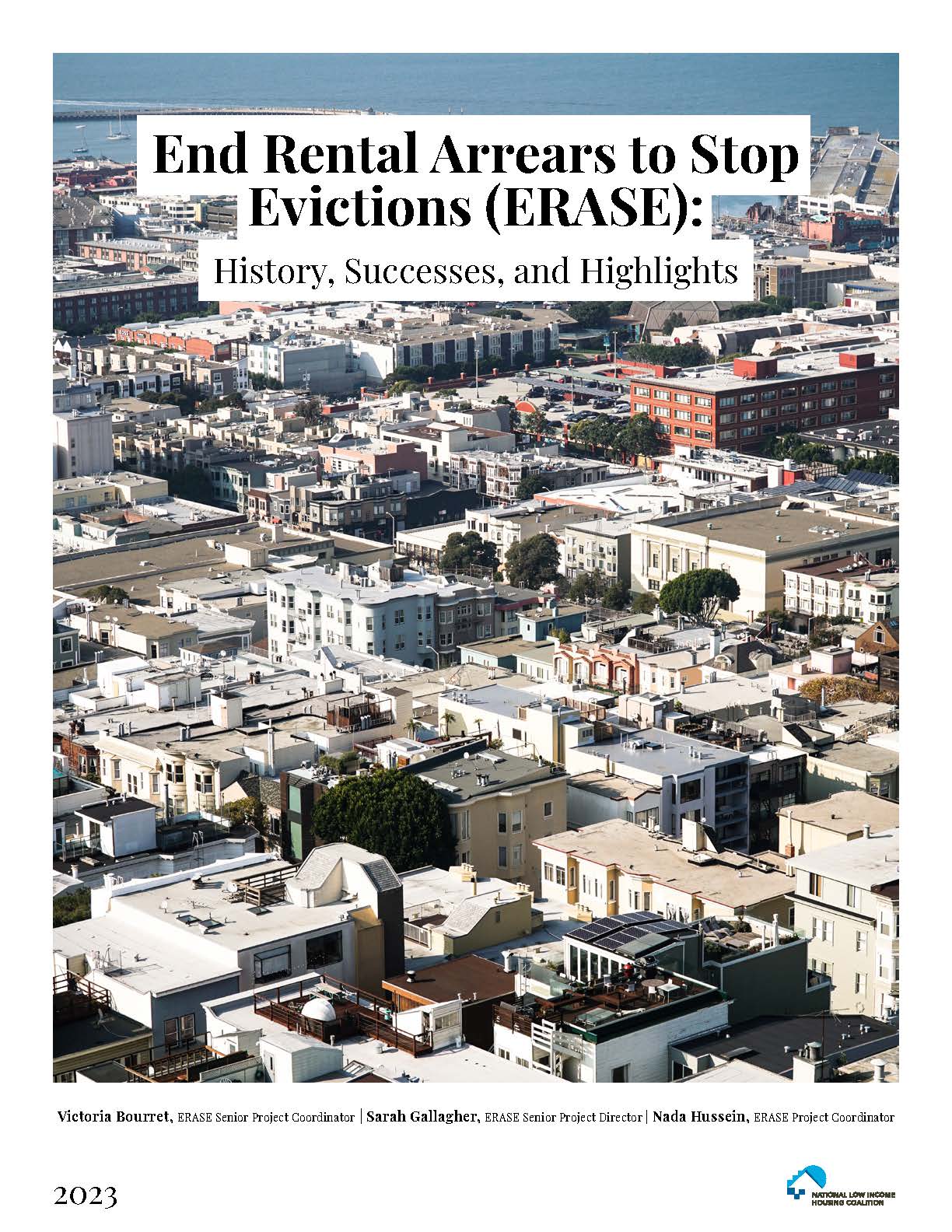NLIHC released today a new brief, End Rental Arrears to Stop Evictions (ERASE): History, Successes, and Highlights. The brief recounts the origin of NLIHC’s ERASE project – which formally concludes this year – and explains the project’s aims and structure, surveys the achievements of the ERASE team, and details the successes of ERASE cohort members. The brief also discusses how NLIHC plans to draw on lessons learned from ERASE to continue advocating for federal, state, and local policy innovations that promote housing stability and reduce homelessness.
Emerging in early 2020, the COVID-19 pandemic resulted in widespread job losses that threatened access to safe, stable, and affordable housing for millions of low-income renters. By the last quarter of 2020, housing insecurity had reached unprecedented levels, with more than 8 million renter-households having fallen behind on at least one rental payment. By March 2021 – one year into the public health emergency – extremely low-income renters nationwide faced a looming eviction crisis.
In response, NLIHC led a campaign for “Rent Relief Now” that persuaded Congress to make an historic $46.5 billion in emergency rental assistance (ERA) available to states, localities, tribes, and territories through two pieces of legislation: the “Consolidated Appropriations Act, 2021” and the “American Rescue Plan Act of 2021.” To ensure that ERA funds reached those renters most in need, NLIHC simultaneously launched a new project, “End Rental Arrears to Stop Evictions” (ERASE). The project engaged in advocacy, research, communications, tracking, and outreach at the federal, state, and local levels to support the efficient and equitable disbursal of ERA. From the beginning, the project also compiled lessons learned from the successes of various ERA programs to support future advocacy for a permanent ERA program and broader renter protections.
The new brief highlights the successes of the ERASE project over its three-year history and summarizes the activities and achievements of its member organizations. In addition to describing the advocacy and research efforts conducted by the ERASE team, the brief surveys the activities conducted by members of the three ERASE cohorts, which included well over one hundred local housing organizations that conducted on-the-ground advocacy, developed ERA program infrastructure, and pushed for ERA program improvements, permanent ERA, the expansion of tenants’ rights, and stronger tenant protections. In addition to successfully advocating for hundreds of millions of dollars in ERA funds for their localities, cohort members helped bring about the passage of more 200 new state and local tenant protections.
The brief also explains how NLIHC will build on the successes of the project in future advocacy efforts. For example, NLIHC will draw on the lessons learned from ERASE to promote policy innovations at the state and local levels, with the overall objective of supporting federal policies that seek to end homelessness and increase housing stability. To support such policy innovations, NLIHC plans to convene housing- and justice-based state and local advocacy organizations to draft sample legislative text for local laws and ordinances that support tenants. NLIHC will also build national momentum for the passage of tenant protections by organizing members of previous ERASE cohorts, tenant-led organizations, state and tribal partners, and other interested stakeholders in a collective that will provide information sharing, technical support, and research assistance, while also serving as a vehicle to advocate for the enactment of uniform federal tenant protections. In this way, NLIHC will advance a coherent set of local, state, and federal policies that support housing stability and prevent evictions over the long term.

